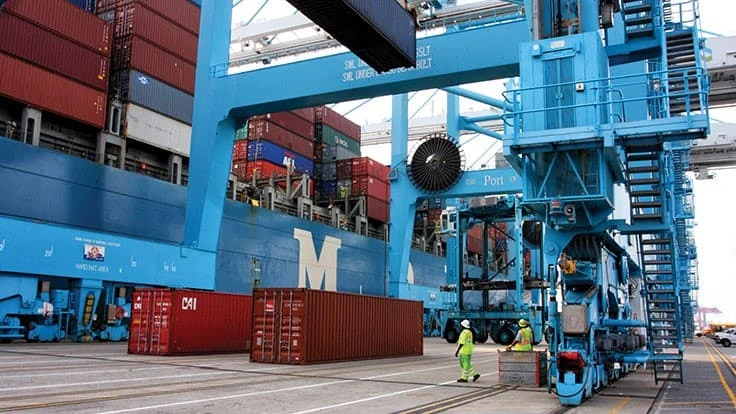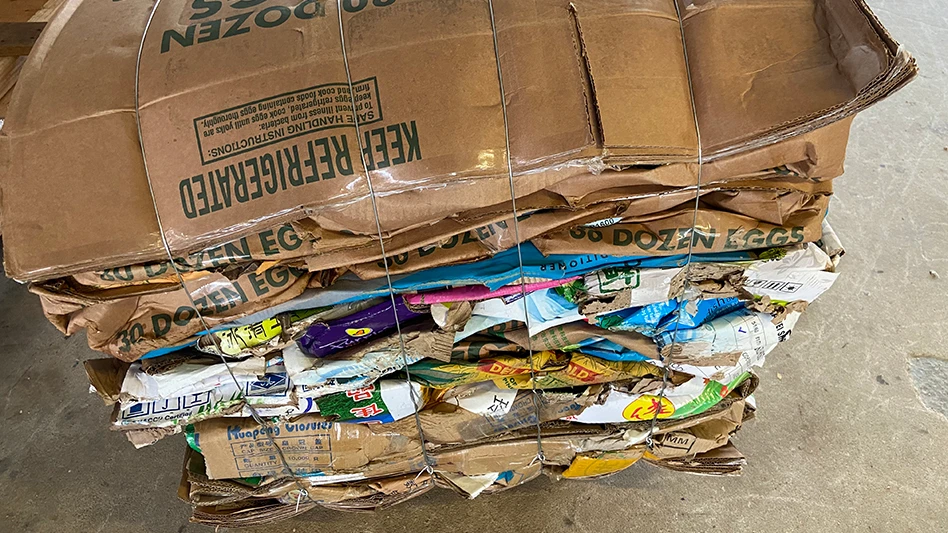
Bipartisan legislation introduced to Congress earlier this week represents the first major update of federal regulations for the global ocean shipping industry since 1998 and would support American exports by establishing reciprocal trade opportunities to help reduce the United States’ longstanding trade imbalance with China and other countries, according to its sponsors.
The Ocean Shipping Reform Act of 2021, sponsored by Reps. John Garamendi, a Democrat out of California, and Dusty Johnson, a Republican out of South Dakota, if enacted, would:
- establish reciprocal trade to promote U.S. exports as part of the Federal Maritime Commission’s (FMC) mission;
- require ocean carriers to adhere to minimum service standards that meet the public interest, reflecting best practices in the global shipping industry;
- require ocean carriers or marine terminal operators to certify that any late fees—known in maritime parlance as “detention and demurrage” charges—comply with federal regulations or face penalties;
- shift burden of proof regarding the reasonableness of “detention or demurrage” charges from the invoiced party to the ocean carrier or marine terminal operator;
- prohibit ocean carriers from declining opportunities for U.S. exports unreasonably, as determined by the FMC in new required rulemaking;
- require ocean common carriers to report to the FMC each calendar quarter on total import/export tonnage and twenty-foot equivalent units (loaded/empty) per vessel that makes port in the United States; and
- authorizes the FMC to self-initiate investigations of ocean common carrier’s business practices and apply enforcement measures, as appropriate.
A news release issued by Garamendi’s office notes that in late April 2020, the FMC announced “Fact Finding No. 29” to investigate congestion, bottlenecks and fees at our ports. In November 2020, the Commission expanded this investigation to include reports of ocean carriers declining to ship American exports.
July 20 of this year, the FMC launched a new audit program to assess ocean carriers’ compliance with federal regulations on detention and demurrage and increase the agency’s monitoring of the marketplace for ocean cargo services. This action underscores the need for legislation, according to the bill’s sponsors.
The legislation has been endorsed by the Institute of Scrap Recycling Industries (ISRI), International Paper, the American Trucking Associations (ATA), Intermodal Motor Carrier Conference and the Consumer Brands Association, as well as a number of agricultural product associations.
While the sponsors of the bill say it would help to create a level playing field, the government reforms would pitch the playing field in favor of shippers in commercial disputes, the World Shipping Council, which represents 90 percent of global container capacity, says.
A statement from the WSC reads in part: “If the government is going to step in, it must be to assure fairness for all parties, and that means that the law must spell out responsibilities and consequences for nonperformance by all parties. The legislation does not take that even-handed approach. Just because the market has temporarily turned under stress from unprecedented U.S. consumer and business import demand does not warrant legislatively creating a commercial playing field that is unlevel and which will persist for many years if enacted.”
The WSC contends that the issues with ocean shipping have arisen because of wider supply chain issues. “Every link in the supply chain—from marine terminals, to truckers, to rail cars and warehouses—is under tremendous strain. It is unrealistic, inequitable and unproductive to try to address these supply-chainwide challenges by regulating only one class of supply chain participants—ocean carriers. It is doubtful that regulating all supply chain actors—ports, marine terminals, labor, truckers, railroads, warehouse operators—would have any discernible positive impact on the current supply chain challenges.”
The association says targeting ocean carriers “will not improve supply chain performance, and it risks undermining the regulatory and market structure that has served the nation’s international trade well for many decades. It is possible to make the situation worse, and this bill would do just that."
Johnson told American Shipper that while the top 10 ocean carriers controlled 12 percent of container shipping volume two decades ago, they now control 80 percent. “Clearly we’re dealing with a very different environment.”
He told the publication he is concerned about market concentration in the ocean carrier sector and the effect it can have on rates.
American Shipper quotes Johnson as saying, “I’m a believer in the free market, but the free market is about many buyers and many sellers, and when you have unreasonable amounts of concentration and merger activity, you give certain market participants asymmetrical power. That’s a market failure and it can at times be a reasonable place for regulation.”
Latest from Recycling Today
- Commentary: How EPR is transforming the packaging industry
- Acerinox names new North American Stainless CEO
- Greenwave closes 2024 books with red ink
- Steel Dynamics nets $217M on record shipments
- Massive Chinese steelmaking rebound recorded in March
- LME looks into sustainable metal pricing
- OnePlanet Solar Recycling closes $7M seed financing round
- AMCS launches AMCS Platform Spring 2025 update





